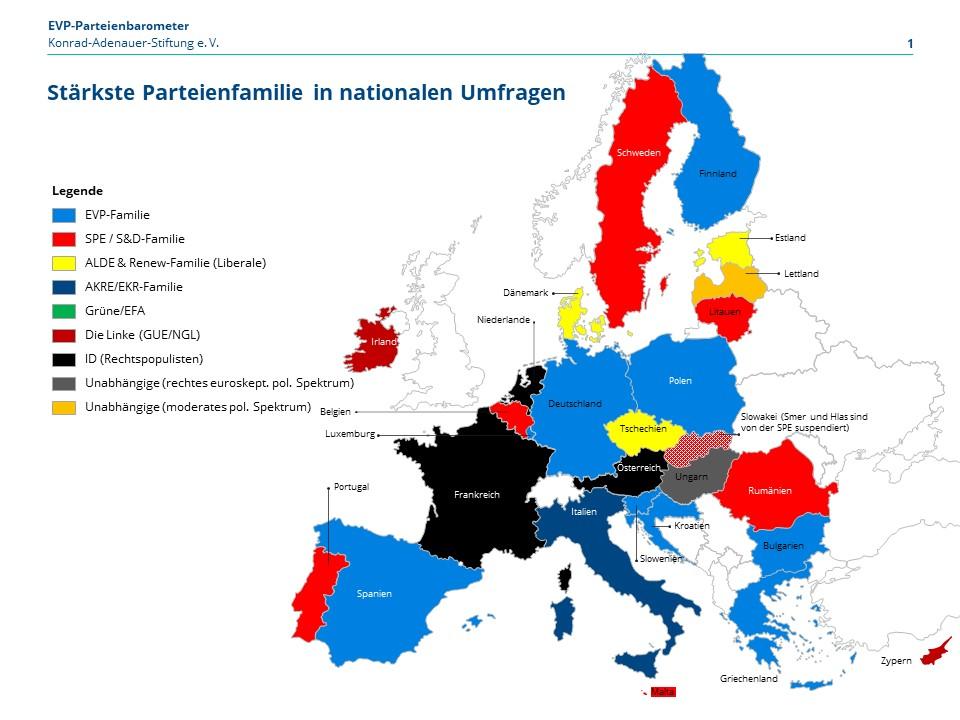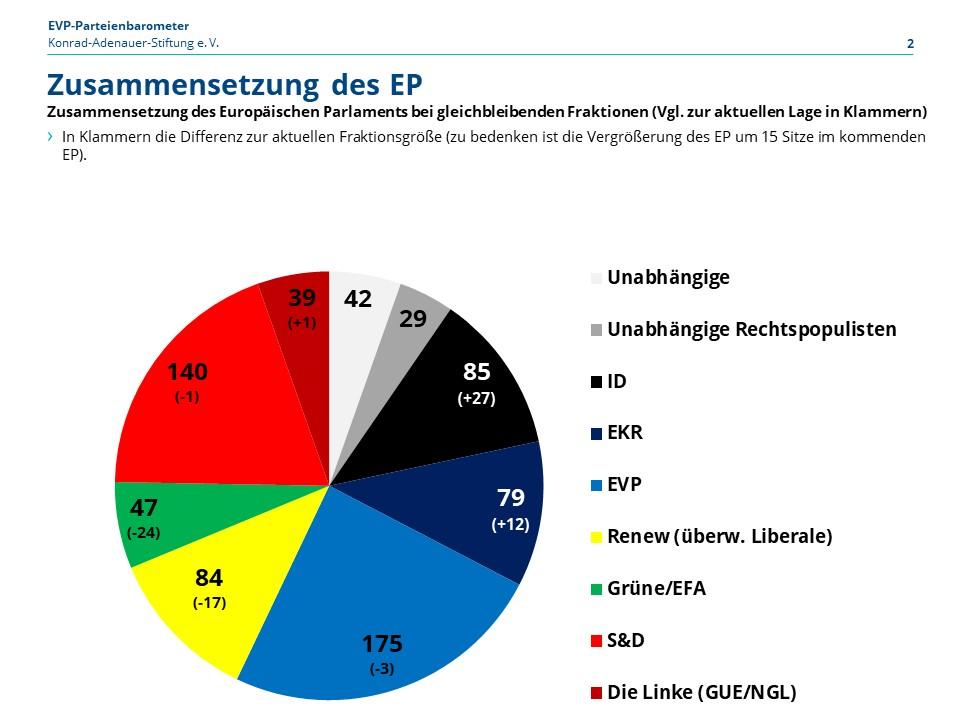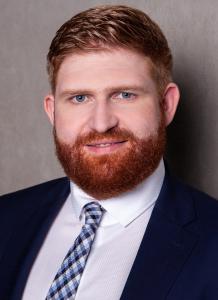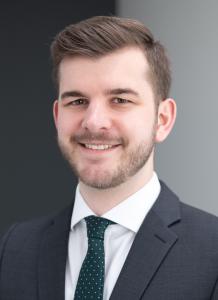Europäisches Parlament / Pietro Naj-Oleari
Position of the EPP family in the EU
- The EPP family leads as the strongest political family in polls across 9 countries, followed by the socialist family in 7 countries, which includes the currently suspended Slovak parties Smer and Hlas. The ID (far-right) and the liberal Renew group are ahead in 3 countries. The Left holds the lead in 2 countries, while the Eurosceptic national conservative ECR is ahead in one country. In Hungary, Fidesz (not yet affiliated with any party family) is in front. Meanwhile, in Latvia, parties that are formally independent have combined to take the lead.
- When focusing on the strongest individual parties rather than party families, the landscape shifts slightly. The EPP leads in 10 countries, with the Socialists holding strong in 7, assuming Smer's inclusion. The ID group advances in 4 countries, while both the ECR and the Left lead in 2 countries each, and the Liberals in one. Fidesz in Hungary, still unaffiliated with a new party family, maintains its lead.
- The margins of leadership over other party families or individual parties are often slim, with narrow leads observed in countries such as Portugal, Poland, Belgium, Denmark, and Bulgaria. However, variations in polls sometimes present different leaders.
Situation in the European Council
- Within the European Council, 10 out of the 27 heads of state and government are members of the EPP group. If one includes the President of Cyprus, who, despite being an independent, was formerly associated with an EPP party and continues to be invited to EPP summits, the count rises to 11.
- The S&D faction comprises 6 heads of state and government, a number that includes Smer/Robert Fico, despite their suspension from the PES.
- Another 6 leaders are affiliated with the Renew group, while 2 are part of the Eurosceptic conservative European Conservatives and Reformists (ECR) group.
- There are 3 heads of state and government who are officially independent, including the Prime Minister of Hungary. Excluding the President of Cyprus from the independent count reduces the number of formally independent leaders to 2.
Read the full analysis here.







